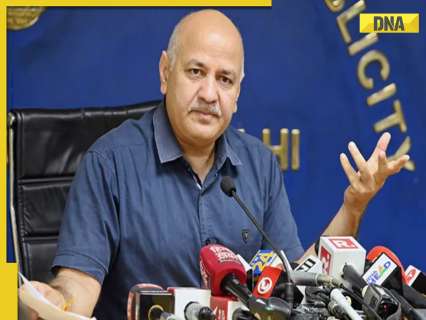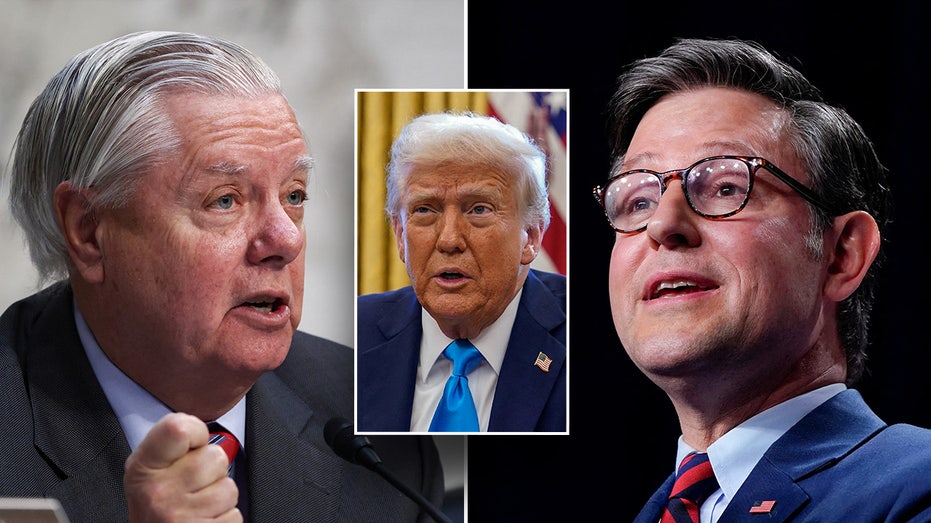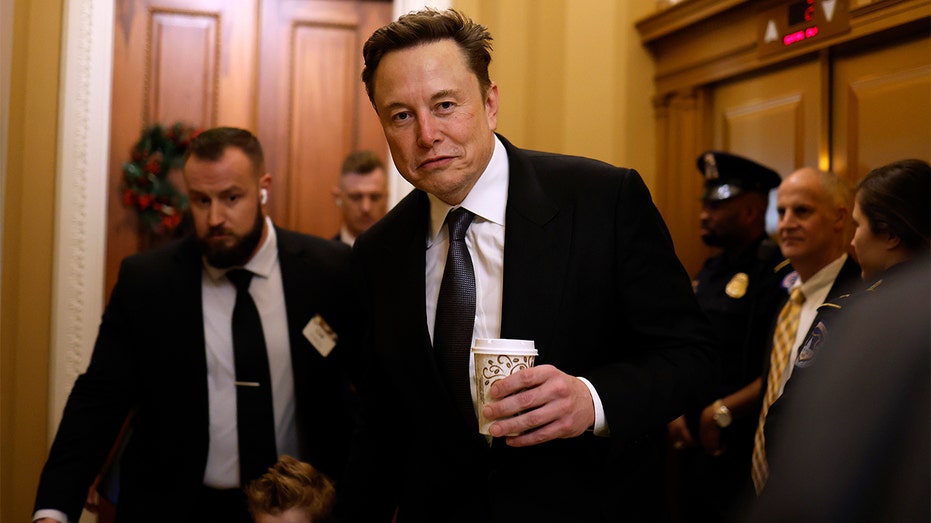Delhi election results 2025: AAP’s Manish Sisodia concedes defeat from Jangpura to BJP’s Tarvinder Marwah

Speaking to the media, Sisodia asserted that the people have supported him really well and affirmed hope that BJP’s candidate will work for the constituency.
How PM Modi’s magic shattered Arvind Kejriwal and his third-term hope in Delhi?

The current Delhi Assembly election was the toughest test for Kejriwal who had arrived on Delhi’s political scape with a promise of a fresh approach and wave of clean governance sans VIP culture.
Dr Tanvi Tijoriwala, ND shedsputs light on balancing skin barrier during rising temperatures

Skincare experts and dermatologists often emphasise the importance of adapting skincare routines as weather changes
As BJP prepares for victory in Delhi after over 26 years, Anna Hazare claims Arvind Kejriwal’s AAP ‘drowned’ due to..

The Aam Aadmi Party, born from Anna Hazare’s anti-corruption crusade, is trailing behind the Bharatiya Janata Party as votes are being counted for the 70-member Delhi assembly polls held earlier this week. Trends and results on the EC website showed the BJP ahead in 48 seats and the AAP in 22.
AAP chief Arvind Kejriwal’s first reaction after massive defeat in Delhi: ‘Will play role of constructive Opposition’

AAP chief Arvind Kejriwal released a video message on X (formerly Twitter), conceding defeat in the Delhi Assembly elections, saying that he and his party graciously accept people’s decision.
Republicans in House, Senate on collision course over sweeping Trump budget bill

House Republicans are racing to get ahead of their Senate counterparts on plans to pass sweeping conservative policy legislation and advance President Donald Trump’s agenda. Plans to take the first step in the budget reconciliation process this week were scuttled in the House, with fiscal hawks pushing GOP leaders to raise their proposed floor for spending cuts after balking at an initial rough proposal presented last month at the House Republican issues retreat in Miami. Meanwhile, the Senate is moving full steam ahead with their own plan to advance a budget resolution on Wednesday and Thursday. Senate Budget Committee Chairman Lindsey Graham, R-S.C., unveiled the upper chamber’s plan on Friday. House Speaker Mike Johnson, R-La., told reporters that same day that he was hopeful the House Budget Committee would take up the lower chamber’s resolution on Tuesday. SCOOP: KEY CONSERVATIVE CAUCUS DRAWS RED LINE ON HOUSE BUDGET PLAN “We’ve got a few more people we’ve got to talk with and a couple of more boxes to check, but we are almost there,” Johnson said. “The expectation is that we will be marking up a budget next week, potentially as early as Tuesday, the resolution. That will, of course, begin the process and unlock the whole reconciliation process, which I think we can wrap up in a short amount of time.” Two House GOP lawmakers told Fox News Digital on Friday that the plan would call for a minimum of $2 trillion to $2.5 trillion in spending cuts over a period of 10 years. Republicans plan to use their majorities in the House and Senate to pass a wide swath of Trump policy initiatives, from extending the 2017 Tax Cuts and Jobs Act to funneling more cash to operations at the U.S.-Mexico border. The budget reconciliation process makes that possible by lowering the threshold for Senate passage from 60 votes to a simple 51-seat majority. Because the House already operates on a simple majority threshold, it will allow Republicans to skirt Democratic opposition to pass their agenda — provided the measures included involve budgetary or other fiscal matters, as reconciliation rules call for. A group of House Republicans, including Johnson, were at the White House on Thursday to discuss the process. Trump told lawmakers he wanted the reconciliation plans to include eliminating taxes on tipped and overtime wages, no taxes on seniors, and no taxes on Social Security payments. While they agree on the overall policies that need to pass via the reconciliation process, House and Senate Republicans differ in their preferred approach. House Republicans are aiming to put all of Trump’s priorities on taxes, border security, energy, and defense into one large bill — complete with deep spending cuts to offset the new funding. BLACK CAUCUS CHAIR ACCUSES TRUMP OF ‘PURGE’ OF ‘MINORITY’ FEDERAL WORKERS The Senate plan, meanwhile, would split the process into two bills. The first, unveiled by Graham on Friday, includes Trump’s border, energy and defense policies. A second bill would deal with taxes. But House GOP leaders are concerned that the intense political maneuvering the process takes will mean they run out of time before passing a second bill with Trump’s tax cuts at the end of this year. A Ways & Means Committee memo sent earlier this year projected the average American household could see taxes rise by over 20% if those provisions expire at the end of 2025. Trump himself has repeatedly called for “one big, beautiful bill,” but said he ultimately was not concerned about the packaging as long as all of his priorities were passed.
Here’s what happened during Trump’s 3rd week in office

President Donald Trump welcomed Israeli Prime Minister Benajamin Netanyahu to the White House Tuesday, marking the first visit from a foreign leader during Trump’s second term. During Netanyahu’s visit, Trump also unveiled massive plans suggesting that the U.S. would “take over” the Gaza Strip in a “long-term ownership position” to deliver stability to the region. “The U.S. will take over the Gaza Strip, and we will do a job with it, too,” Trump said Tuesday evening in a joint press conference with Netanyahu. “We’ll own it and be responsible for dismantling all of the dangerous, unexploded bombs and other weapons on the site.” Even so, White House press secretary Karoline Leavitt said the president wouldn’t commit to placing U.S. troops on the ground in Gaza as part of the rebuilding effort. “It’s been made very clear to the president that the United States needs to be involved in this rebuilding effort, to ensure stability in the region for all people,” Leavitt told reporters Wednesday at a White House press briefing. “But that does not mean boots on the ground in Gaza. It does not mean American taxpayers will be funding this effort. It means Donald Trump, who is the best dealmaker on the planet, is going to strike a deal with our partners in the region.” TRUMP NOT COMMITTING TO PUTTING TROOPS ON THE GROUND IN GAZA, WHITE HOUSE SAYS Leavitt said that Trump is an “outside-of-the-box thinker” who is “a visionary leader who solves problems that many others, especially in this city, claim are unsolvable.” The announcement sparked backlash though from Democratic lawmakers, to leaders of Palestinian militant group, Hamas. “What President Trump stated about his intention to displace the residents of the Gaza Strip outside it and the United States’ control over the Strip by force is a crime against humanity,” a senior Hamas official told Fox News on Wednesday. Here are some other actions Trump took his second week in office: Trump also reinstated his “maximum pressure” campaign against Iran, instructing the Treasury Department to execute “maximum economic pressure” upon Iran through a series of sanctions aimed at sinking Iran’s oil exports. Trump said Tuesday that he was “torn” about signing the order and admitted he was “unhappy to do it,” noting that the executive order was very tough on Iran. “Hopefully, we’re not going to have to use it very much,” Trump told reporters Tuesday. Trump later told reporters in a joint press conference with Netanyahu that he believes Iran is “close” to developing a nuclear weapon, but that the U.S. would stop a “strong” Tehran from obtaining one. TRUMP REINSTATES ‘MAXIMUM PRESSURE’ CAMPAIGN AGAINST IRAN “They’re very strong right now, and we’re not going to let them get a nuclear weapon,” Trump said. His first administration also adopted a “maximum pressure” initiative against Tehran, issuing greater sanctions and harsher enforcement for violations. Strict sanctions were reimposed upon Iran after Trump withdrew from the Iran deal, known as the Joint Comprehensive Plan of Action, in May 2018. The 2015 agreement brokered under the Obama administration had lifted sanctions on Iran in exchange for limits on Iran’s nuclear program. Trump also signed an executive order sanctioning the International Criminal Court (ICC) on Thursday, in response to its May 2024 arrest warrant for Netanyahu. The order — which was lauded by even some top Democrats — unveils financial sanctions and visa restrictions against ICC officials and their family members who support ICC investigations against U.S. citizens and allies. The White House also signed executive orders on Thursday instructing the Justice Department to establish a task force dedicated to weeding out “anti-Christian bias,” and a review of all nongovernmental organizations that accept federal funds. The ICC is an independent, international organization based in The Hague and established under the Rome Statute, an international treaty that took effect in 2002. The court oversees global issues including genocide, crimes against humanity and war crimes. The Trump White House claims that the U.S. and Israel are not subject to the jurisdiction of the ICC because the court poses threats to U.S. sovereignty and constitutional protections. Additionally, the White House has accused the ICC of politicization and said it has targeted Israel without holding regimes like Iran to the same standards. The U.S. Treasury and Commerce Departments will establish a sovereign wealth fund in accordance with a new executive order Trump signed on Monday. The sovereign wealth fund, a state-owned investment fund with various financial assets like stocks and bonds, could foot the bill for purchasing TikTok, according to Trump. “We’re going to be doing something perhaps with TikTok, and perhaps not,” Trump told reporters Monday. “If we make the right deal, we’ll do it. Otherwise, we won’t.” Secretary of the Treasury Scott Bessent said the sovereign wealth fund would be created within the next 12 months. WHAT WE KNOW ABOUT THE TRUMP ADMINISTRATION’S PLANS FOR A SOVEREIGN WEALTH FUND “I think it’s going to create value and be of great strategic importance,” Bessent told reporters Monday. Bessent and Commerce Secretary nominee Howard Lutnick are instructed to devise a plan in the next 90 days for the creation of the fund, according to the White House. The proposal will include recommendations on funding mechanisms, investment strategies, fund structure and a governance model. More details on the sovereign wealth fund were not immediately available, and it’s unclear whether Congress will sign off on it. Fox News’ Greg Norman contributed to this report.
Meet BJP’s Parvesh Verma, ex-CM’s son who defeated Arvind Kejriwal in New Delhi seat, his net worth, assets include…

Parvesh Verma is a well-known BJP leader and a two-time Member of Parliament (MP) from West Delhi
Federal judge rules not to immediately block DOGE access to Labor Department systems

A federal judge on Friday said he would not immediately block the Department of Government Efficiency, or DOGE, from accessing systems at the Labor Department. U.S. District Judge John Bates said he had concerns about DOGE but that the labor unions who sued to block their access to the systems have not yet provided evidence of any legal injury. “Although the court harbors concerns about defendants’ alleged conduct, it must deny plaintiffs’ motion at this time,” Bates wrote. The Labor Department has investigated companies like SpaceX and Tesla that are owned by Elon Musk, who leads DOGE, and keeps records on these investigations. The department also has information about these companies’ competitors’ trade secrets, the unions said in the lawsuit. FEDERAL JUDGE ORDERS LIMITED DOGE ACCESS TO SENSITIVE TREASURY DEPARTMENT PAYMENT SYSTEM RECORDS The department’s Occupational Safety and Health Administration has investigated and fined SpaceX and Tesla over worker safety, the unions said. The Labor Department’s systems contain medical and financial records of millions of Americans, including those who have filed safety complaints about their employers. The ruling comes after the Trump administration agreed earlier this week that DOGE would not receive access to the Labor Department until this court decision. The Justice Department said there are three DOGE staffers assigned to the Labor Department and reporting to its acting secretary, although they have been made special government employees and are required to follow the law with any sensitive information about corporations or workers as they conduct a review. Musk’s DOGE team had gained access to sensitive Treasury Department payment systems, although a judge has since blocked that access to Treasury records containing sensitive personal data such as Social Security and bank account numbers for millions of Americans. DOGE has also largely dismantled the U.S. Agency for International Development and offered financial incentives to millions of federal workers to resign. “At every step, DOGE is violating multiple laws, from constitutional limits on executive power, to laws protecting civil servants from arbitrary threats and adverse action, to crucial protections for government data collected and stored on hundreds of millions of Americans,” labor union lawyers represented by the advocacy group Democracy Forward wrote. ELON MUSK DUNKS ON SEN. CHUCK SCHUMER, DECLARING ‘HYSTERICAL REACTIONS’ DEMONSTRATE DOGE’S IMPORTANCE Labor Department leadership told a union member this week that DOGE would be visiting and workers should let them do “whatever they ask, not to push back, not to ask questions,” the unions wrote. CLICK HERE TO GET THE FOX NEWS APP The Justice Department said there is no evidence of wrongdoing and the judge should not issue “a sweeping, prophylactic order … based on plaintiffs’ rank speculation that DOL will violate the law.” Nineteen states have sued over DOGE’s access to federal payment systems. The Associated Press contributed to this report.
Greater Kailash constituency result: Who is BJP’s Shikha Rai, giving tough fight to AAP’s Saurabh Bharadwaj?

BJP’s Shikha Rai has taken the lead with 15,459 votes, surpassing AAP’s Saurabh Bharadwaj by 4,049 votes, as per the latest Election Commission trends.

